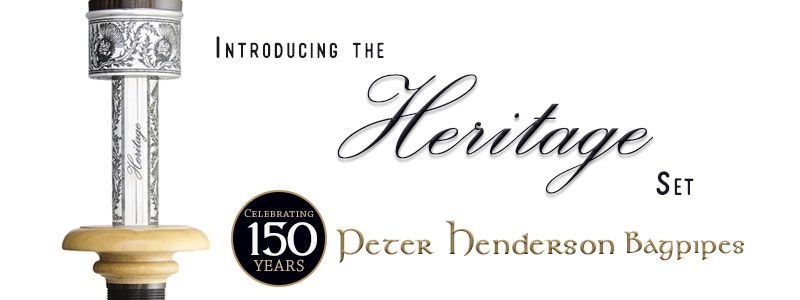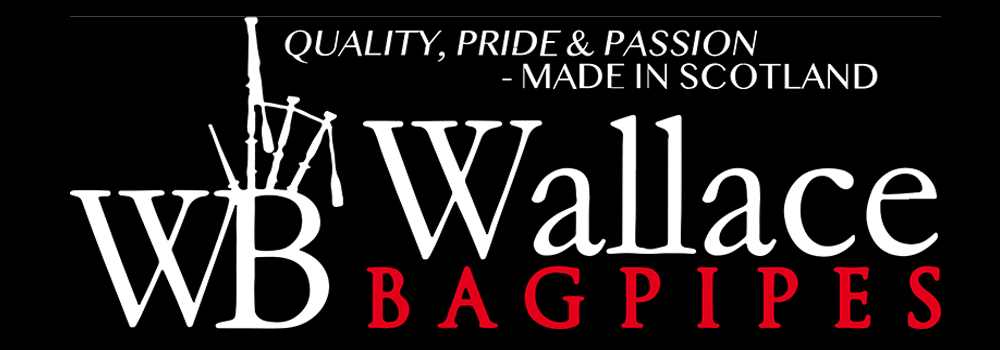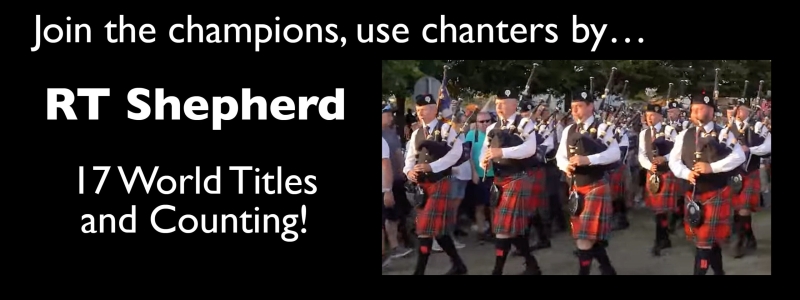 P/M Barry Donaldson, multiple winner of the World Pipe Band Championship with Strathclyde Police (in the historic picture above he’s pictured third from the right in the middle row), and now Pipe Major of the top Grade 2 band, City of Edinburgh, has kindly contributed this first part of his advice plan for the benefit of all readers of pipingpress.com but in particular for those with the responsibility of leading bands in the lower grades. Barry writes:
P/M Barry Donaldson, multiple winner of the World Pipe Band Championship with Strathclyde Police (in the historic picture above he’s pictured third from the right in the middle row), and now Pipe Major of the top Grade 2 band, City of Edinburgh, has kindly contributed this first part of his advice plan for the benefit of all readers of pipingpress.com but in particular for those with the responsibility of leading bands in the lower grades. Barry writes:
In response to Jim Davidson’s letter of 29th March, here are a few tips which may help pipe majors of lower grade bands improve their overall tone.
The first thing to appreciate is that pipe majors of Grade 1 bands have a far easier experience in setting good sound than those of lower grades; quite simply their players are of a higher standard and invariably are far more experienced. However, top bands, such as Field Marshal, Simon Fraser, St Lawrence O’Toole, Boghall & Bathgate, are bands that those in lower grades should study. For example what products are used by these very successful bands? What bags, reeds, moisture control systems do they employ? In my own experience of working with lower grade bands and their pipe majors, very little study is conducted, trial and error being the norm.
Blowing
This is an issue for all pipe bands, and is certainly more problematic within the lower grades. Pipe majors should consider carefully the choice of pipe chanter they use. There are many to choose from, all with different pitches. What pitch is appropriate? Lower grades should stick with a lower pitched chanter as, in all probability, your pipers are blowing weaker reeds. The weaker the reed, the higher the pitch, so the lower pitched chanter will balance things out. A higher pitch is more difficult to control (blowing/tuning), and highlights a player’s deficiencies far more than a lower pitch. Check the various chanters on the market; some are manufactured with bigger holes designed for higher pitch and sound projection but are no use for inexperienced pipers, and certainly inappropriate for youngsters who struggle to cover the finger holes. Bear in mind that all chanter manufacturers are competing to have their product played by the top-level Grade 1 bands where higher pitch is the norm and where the pipers can cope better with larger holed chanters.
A simple test to determine how your pipers are blowing, is to use a drone meter. Best to have a designated person tuning drones with the meter. As the pipe corps plays together, have him or her tune the drones to the pitch you have selected (chanters should be set in unison) in the normal way. Once this has been done, and still within the circle, stop the band and listen to each piper individually using the drone tuner to make adjustments as necessary. At this stage if major drone adjustment is required rather than fine tuning, then you are identifying a piper who is either over, or under, blowing. Invariably pipers under blow during group performance and increase pressure (unwittingly) when they are being listened to. A sure sign of this is when drones are flattened (moved upwards) to accommodate. Point this out to the piper; there should be no argument; a good meter is never wrong.
Most pipers complain about chanter reeds being too strong particularly when new. When confronted with this issue, always check the instrument first to ensure it is efficient. Common faults are a leaking bag (the obvious one), or perhaps a narrow bore blowstick. I recommend investment in a wide-bore version. These can only be made in plastic; wooden blowsticks cannot be widened to the same extent as plastic. This wide bore will facilitate a free flow of air and make the pipe feel easier to blow.
Another tip, perhaps controversial: only play two drones, the bass and one tenor. This has many advantages, and not just in making the pipe easier to blow. The pipe major will find the pipes become steadier, and, lo and behold, ‘strong’ chanter reeds are now ‘easier’. (And this reminds me of a point I should have made earlier: never compromise a reed to accommodate an inefficient bagpipe.)
Overall, the diminished tenor sound will allow the bass drones to predominate and provide a way of improving vital harmonics. (I should say at this juncture that the World Pipe Band Championship has been won with pipers playing only two drones).
In concluding this part of my advice plan, it is important to understand that the quality of the bagpipe is of significant importance. The best bagpipes are found in Grade 1 and it makes life so much easier at that level. And I’ll leave you with this one: most pipers economise on bagpipes and products resulting in frustration and difficulties with set up and tuning. Always invest in the best.
• Stay tuned to pipingpress.com for more advice from P/M Donaldson in the near future. If you’d like to comment on his article please do so below.























Did Strathclyde ever win the World’s on two drones? If you’re going to cork drones of the entire corps all the way up to Grade 1, why have it tied in the bag at all?